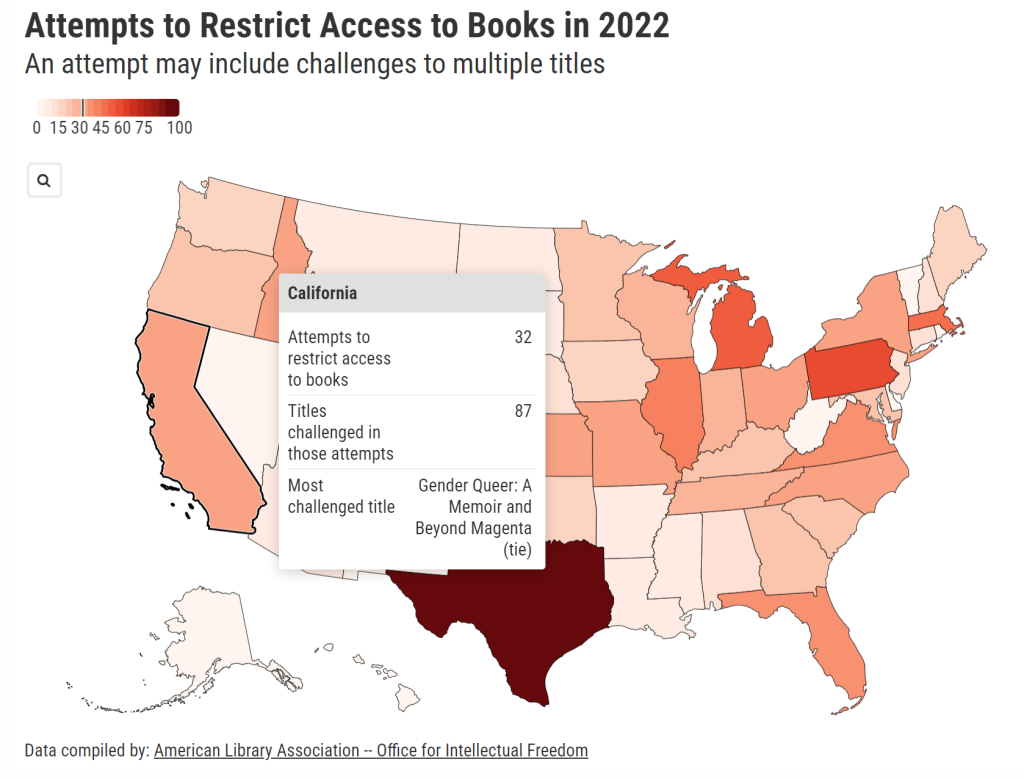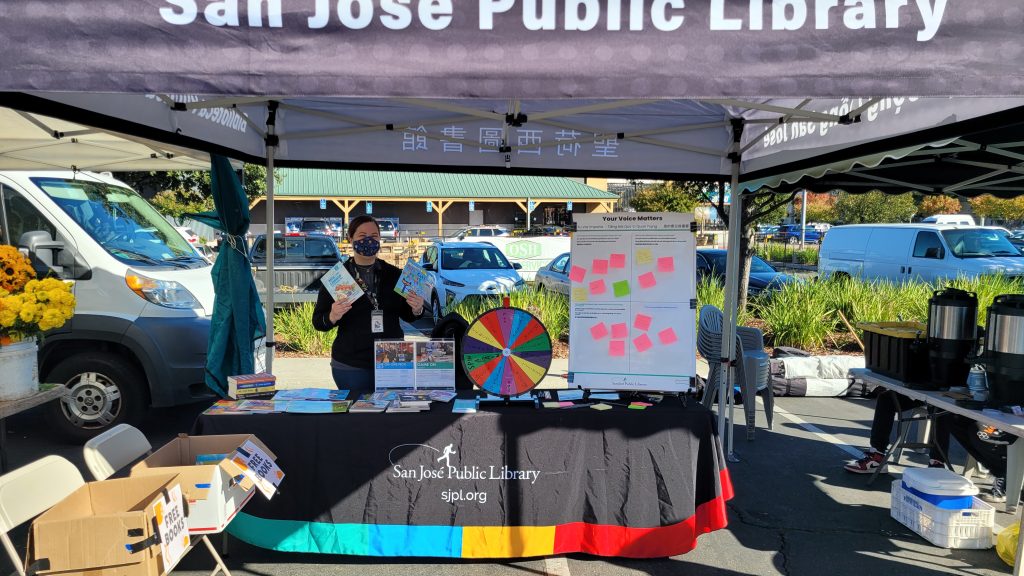A recent surge in book challenges and attempts to censor or remove library materials is negatively impacting libraries and their communities across the country. In response to growing censorship attempts, the American Library Association’s Office of Intellectual Freedom provides support to libraries and library professionals through legal and strategic guidance. Bok challenges and attempts to remove materials from libraries are referred to by the ALA as acts of censorship and intimidation (ALA Statement on Book Censorship, 2021).
From 2022 to 2023, public libraries saw a 92% increase in the number of unique titles targeted for censorship (Book Challenges Set New Record, 2024). To brace for the increase in potential material challenges, public library staff must work on improving their conflict resolution skills and preparedness. Staff should familiarize themselves with their library’s selection and reconsideration policies and feel comfortable answering patron’s questions and concerns. Communicating clearly and consistently to patrons about their policies relating to challenged materials will build transparency and improve trust between patrons and the library (SinhaRoy, 2023). This is especially important because hyperlinked libraries promote transparency and trust by welcoming user feedback and communicating honestly about policies and procedures.

Figure 1: A graph showing the attempted number of book challenges since 2000. From 2020 to 2023, the number of unique titles challenged increased from 223 titles to 4,240 titles (Book Challenges Set New Record, 2024).
The increasing number of book challenges is evidence of an organized conservative political movement with goals that include removing books and materials that contain content that does not meet their approval or is deemed sexually explicit and inappropriate for young readers. Many challenged materials are about race, history, gender identity, sexuality, and reproductive health. The majority of challenged titles are written by or about members of the LGBTQIA+ community or by and about Black people, Indigenous people, and people of color (Censorship by the Numbers, 2023).
As a public library support staff member at the San Jose Public Library, I am grateful that the area where I live and work is generally open-minded, supportive, and inclusive of multiple perspectives and voices. I have not personally experienced a patron challenging our library’s materials. However, I am aware that book challenges and patron complaints regarding the materials in our collections have occurred within the library system. As a result, our team has been tasked with familiarizing ourselves with the library’s selection and reconsideration policies and trained in conflict resolution. Consistency in staff responses to material challenges and patron concerns not only improves transparency between the library and its users but also helps staff form a unified front. In the words of Leander (Texas) Independent School District’s library coordinator Becky Calzada: “We [library staff] need to lock arms and stand strong together,” (SinhaRoy, 2023).

Figure 2: A heat map of the United States showing the number of attempts to challenge books in 2022. The details for California are highlighted, revealing 32 attempts to restrict access to books. While this is not a particularly low number, it is lower than the number of attempts in other states, such as Texas (93) and Pennsylvania (56) (Censorship by the Numbers, 2023).
References
ALA Statement on Book Censorship. (2021, November 29). Advocacy, Legislation & Issues. https://www.ala.org/advocacy/statement-regarding-censorship
Book Challenges Set New Record in 2023. (2024, March 14). American Libraries Magazine. https://americanlibrariesmagazine.org/blogs/the-scoop/book-challenges-set-new-record-in-2023/
Censorship by the Numbers. (2023, April 20). Advocacy, Legislation & Issues. https://www.ala.org/advocacy/bbooks/by-the-numbers
SinhaRoy, S. (2023, June 27). Become Challenge-Ready. American Libraries Magazine. https://americanlibrariesmagazine.org/blogs/the-scoop/become-challenge-ready/
